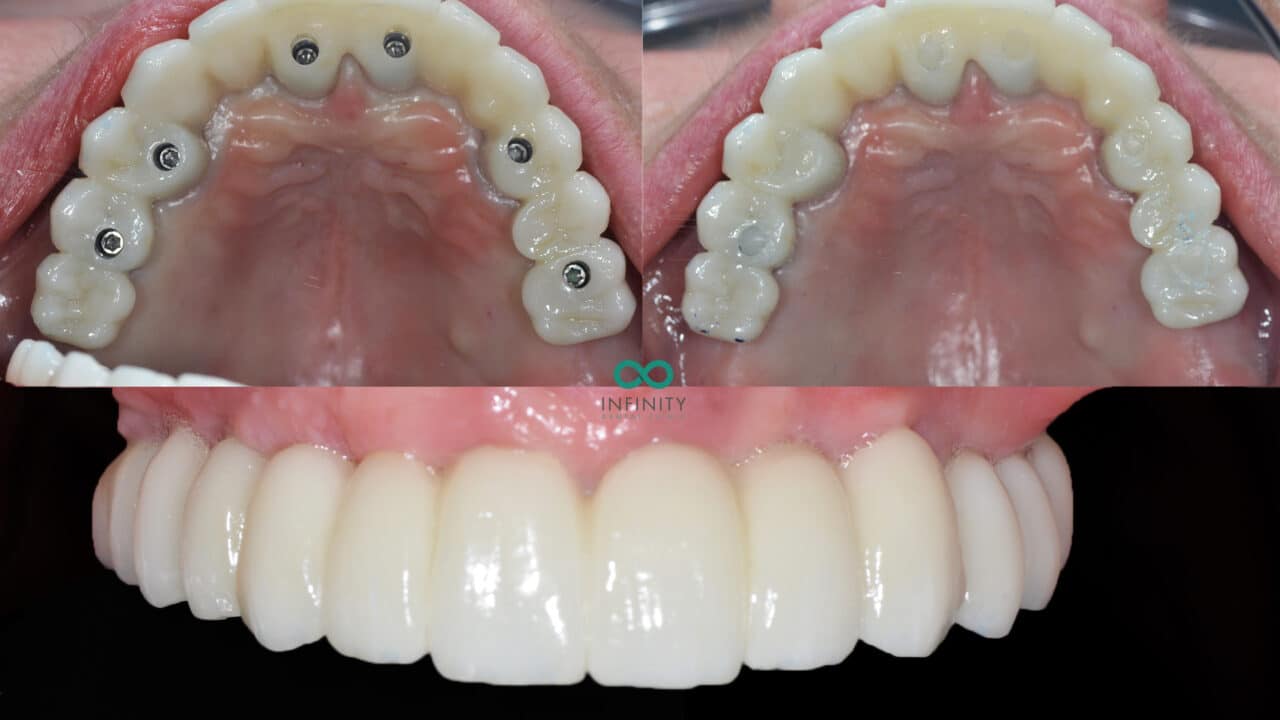How Dental Sense can Save You Time, Stress, and Money.
Table of ContentsThe Single Strategy To Use For Dental Sense5 Easy Facts About Dental Sense ExplainedDental Sense Things To Know Before You Get ThisDental Sense - Questions
are medical tools operatively dental implanted into the jaw to restore a person's ability to chew or their look. They supply assistance for artificial (fake) teeth, such as crowns, bridges, or dentures. When a tooth is lost because of injury or illness, a person can experience difficulties such as fast bone loss, malfunctioning speech, or changes to eating patterns that lead to pain.Oral implant systems contain an oral implant body and oral implant joint and may likewise include an abutment fixation screw. Kids dental. The oral implant body is surgically inserted in the jawbone instead of the tooth's root. The oral implant abutment is normally affixed to the dental implant body by the abutment fixation screw and expands through gum tissues right into the mouth to support the attached artificial teeth
(https://www.find-us-here.com/businesses/Dental-Sense-Miami-Florida-USA/34200016/)Framework of The Dental Implant System picking dental implants, talk to your oral copyright about the prospective benefits and dangers, and whether you are a prospect for the procedure. Points to take into consideration: Your overall health and wellness is a vital consider establishing whether you are a good candidate for dental implants, the length of time it will take to recover, and for how long the dental implant might stay in location.
Smoking may influence the recovery procedure and decrease the lasting success of the implant. The recovery process for the dental implant body might take numerous months or longer, during which time you normally have a short-term abutment in area of the tooth. the dental implant treatment: Meticulously adhere to the dental health instructions provided to you by your oral copyright.
About Dental Sense
Implant failing can lead to the need for an additional operation to deal with or replace the implant system. Brings back the capability to eat Brings back aesthetic look Helps keep the jawbone from shrinking because of bone loss Maintains the health of the bordering bone and periodontals Helps keep nearby (close-by) teeth steady Enhances lifestyle Damage to bordering all-natural teeth during implant placement Injury to the surrounding tissues throughout surgical procedure, such as sinus perforation Injury during surgery (for instance, crack of surrounding jawbone) Poor function, such as really feeling like the teeth do not attack with each other normally A feeling that the tooth is loose or twisting in position arising from a joint screw loosening Implant body failure (looseness of the dental implant body) because of systemic infection, which might be more likely in clients with unrestrained diabetes mellitus as a result of neighborhood infection in bone and gum tissues sustaining the implant body due to delayed healing, which may be most likely in patients that smoke Difficulty cleaning the periodontals around the implant, resulting in poor dental health Untreated periodontal illness Post-surgical tingling due to nerve impingement or damages Always notify healthcare providers and imaging professionals that you have oral implants before any kind of magnetic vibration imaging (MRI) or x-ray procedures.
FDA is not familiar with any type of negative events reported for MRI or x-ray treatments with oral implants. Dental implants systems are normally constructed from materials that follow international consensus standards of the International Organization for Standardization (ISO) or ASTM International. These criteria have information of what makes a secure product.

A dental implant is a structure that replaces a missing out on tooth. With screw-like tools, the surgeon inserts a dental implant right into the jawbone, and it acts as a support for a synthetic tooth, called a crown.
All about Dental Sense
Some individuals are not qualified for dental implant surgical treatment. It is for dental surgeons to operate on people with: acute illnessuncontrollable metabolic diseasebone or go to website soft cells illness or infectionIf these problems are resolved, an individual can have the surgical procedure. In, oral surgeons avoid from operating people with: If individuals with any one of the above undergo oral implant surgical procedure, there is a higher threat of the dental implant failing.

Dental implant surgical treatment is an individualized process. It's not the very same for everyone. But the following offers a basic summary of what you can expect your dental professional, dental surgeon, periodontist or prosthodontist to do: Position the implant surgically. Provide you time to recover. Attach the article and final crown, bridge or denture.
Next off, your surgeon will meticulously position the dental implant into your jaw. Your cosmetic surgeon will reposition your gum tissues and shut the cut with stitches. If your dental implant is near the front of your mouth, your dental professional will make a momentary tooth for you to wear till you recover. This way, you won't have a gap in your smile while you recover.
Our Dental Sense Statements
Throughout the healing stage, your jawbone needs to fuse to the dental implant. This process can take anywhere from 3 to 9 months.
When your implant heals, your dentist can attach the joint (small connector message) and your final reconstruction (crown, bridge or denture). This normally takes concerning one hour to complete and might call for a 2nd minor surgical treatment. You shouldn't really feel any kind of discomfort during your oral implant procedure because your company will certainly use drug to numb your gums.